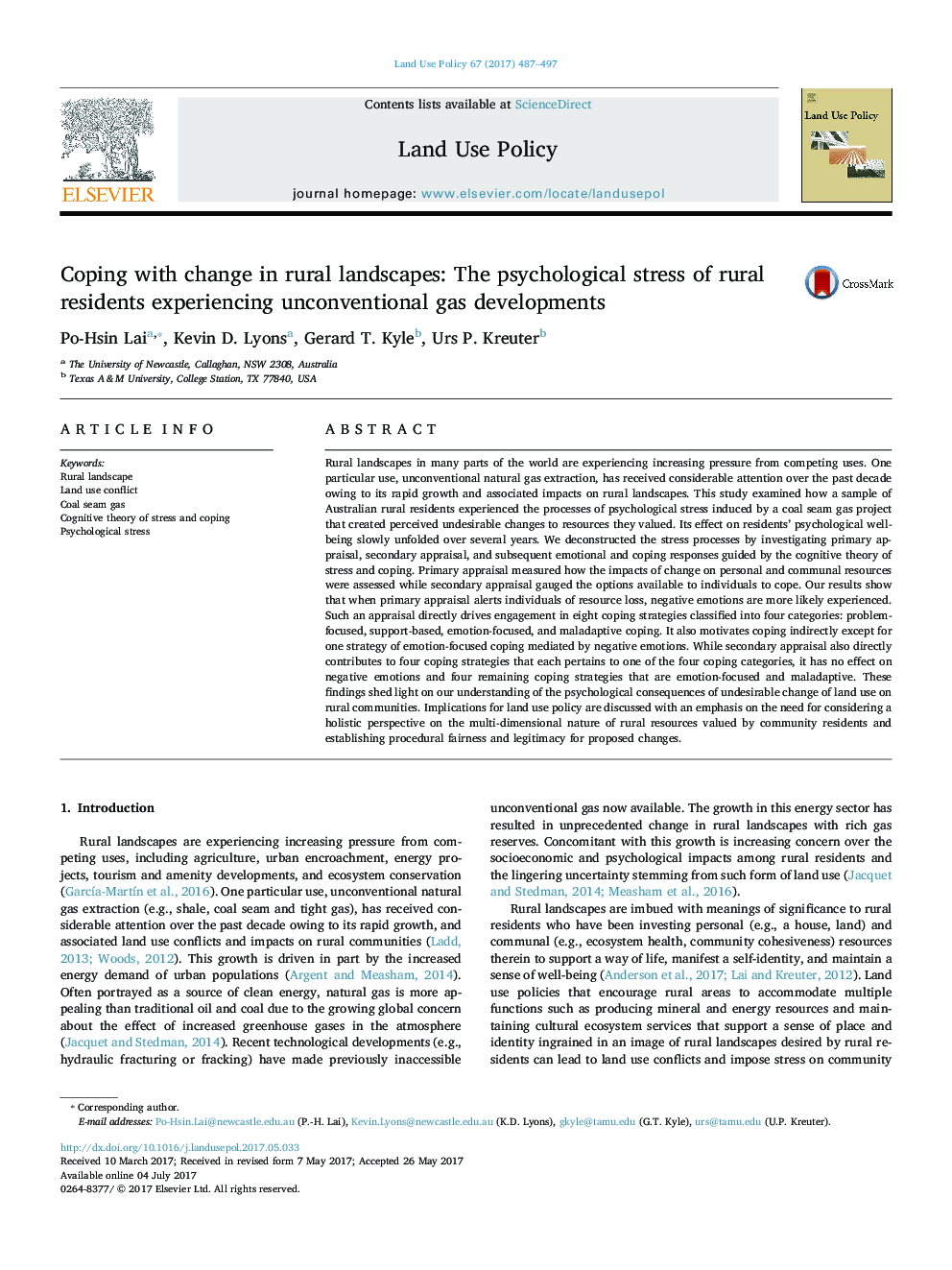| Article ID | Journal | Published Year | Pages | File Type |
|---|---|---|---|---|
| 6460709 | Land Use Policy | 2017 | 11 Pages |
â¢Changes to rural land use can mobilise stress processes among rural residents.â¢The cognitive theory of stress and coping is used to guide hypothesis testing.â¢Primary appraisal contributes to coping both directly and indirectly via emotions.â¢Secondary appraisal only influences some of the coping strategies directly.â¢Land use policy supportive of a holistic view of rural resources is recommended.
Rural landscapes in many parts of the world are experiencing increasing pressure from competing uses. One particular use, unconventional natural gas extraction, has received considerable attention over the past decade owing to its rapid growth and associated impacts on rural landscapes. This study examined how a sample of Australian rural residents experienced the processes of psychological stress induced by a coal seam gas project that created perceived undesirable changes to resources they valued. Its effect on residents' psychological well-being slowly unfolded over several years. We deconstructed the stress processes by investigating primary appraisal, secondary appraisal, and subsequent emotional and coping responses guided by the cognitive theory of stress and coping. Primary appraisal measured how the impacts of change on personal and communal resources were assessed while secondary appraisal gauged the options available to individuals to cope. Our results show that when primary appraisal alerts individuals of resource loss, negative emotions are more likely experienced. Such an appraisal directly drives engagement in eight coping strategies classified into four categories: problem-focused, support-based, emotion-focused, and maladaptive coping. It also motivates coping indirectly except for one strategy of emotion-focused coping mediated by negative emotions. While secondary appraisal also directly contributes to four coping strategies that each pertains to one of the four coping categories, it has no effect on negative emotions and four remaining coping strategies that are emotion-focused and maladaptive. These findings shed light on our understanding of the psychological consequences of undesirable change of land use on rural communities. Implications for land use policy are discussed with an emphasis on the need for considering a holistic perspective on the multi-dimensional nature of rural resources valued by community residents and establishing procedural fairness and legitimacy for proposed changes.
